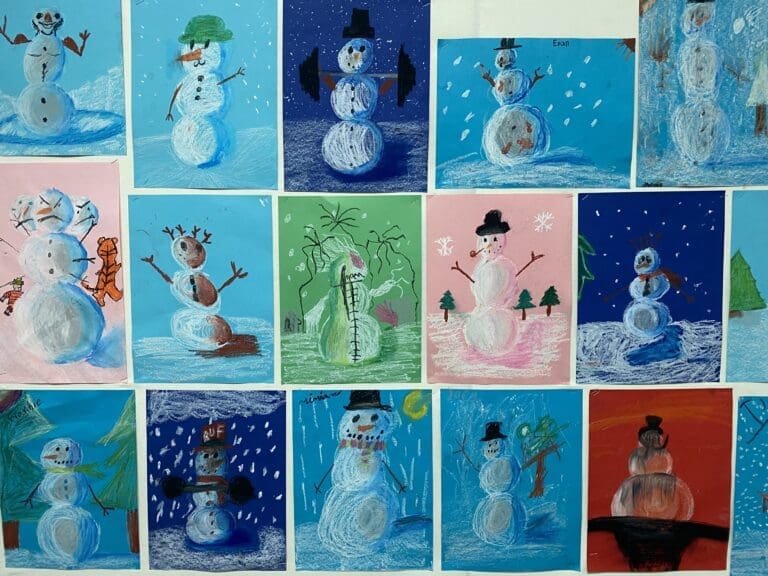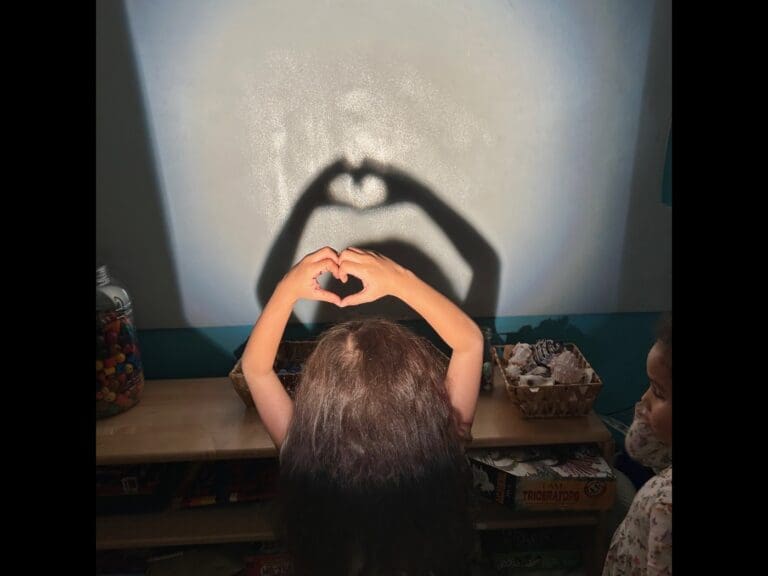Enter with a sense of wonder…
Through the halls of KAS and in every classroom, science is happening whether the students realize it or not.
From the youngest of the KAS community, the scientific process has already begun. The best part of an educator’s job is being trusted with these young minds and fostering their curiosity. Through the Responsive Classroom, teachers at KAS are able to help facilitate and develop lessons that build on students interests and knowledge.
The moment the Kindergarten class walks into the building they become mini scientists throughout the day. Kindergarten students are already observing and asking questions. Open-ended questions are asked in response to their questions, enabling the teachers to build on students’ knowledge and assess what they might already know. This is a fun age, because almost everything can turn into a science lesson with the questions that students can ask. It is a time of exploration through their five senses.

By the time the kindergarten students move to first grade, they are ready to start making predictions and continue building on observations. All kids learn in different ways and at KAS the students are fortunate to be able to have a lot of hands-on learning. Leading with kindness, as KAS students always do, Miss G’s first graders have recently made bird feeders to help feed the birds through these cold winter days. As they learn about animals and their habitats, they start to understand the importance of each species and adaptations. Science helps to build confidence, develops communication skills, and helps students make sense of the world around them.
Let’s hope that students never stop observing, questioning, and making predictions, there is so much more to science. By second grade at KAS, students are ready for the planning of an experiment and drawing conclusions. Whether they are studying the elements of matter or working on coding, the students are learning by doing, making a hypothesis, testing that hypothesis, and possibly even starting all over again. During Mr. Bob’s Morning Meetings, the students have the opportunity to review and discuss concepts and ideas in preparation for the day’s lesson.



In third grade, KAS students are ready for hands-on demonstration and have been busy making their very own weather instruments. Whether they are measuring the air pressure, the amount of precipitation, or measuring the wind speed, the students are making observations, forming a hypothesis, experimenting, and examining their results. By actively participating with the information that they are learning, students perform better. While Mr. Minh is assisting a student, peer learning is happening amongst the other students as they help each other.

Science is never finished just because students go to another grade level. There is repetition of topics and more information to be learned on that topic throughout all grade levels. Teachable moments are some of the best learning experiences that can happen during a teacher’s day. As 4th and 5th grade take a deeper dive into Matter, snow can be a blessing. A field trip outside on a cold winter’s day, students bearing glass measuring cups, they fill them to the brim with fresh fallen snow. Inside the classroom a hot plate is warming up as Mr. Cochran demonstrates how melting snow is an example of states of matter and physical change. You could provide a 30 minute lecture, very little discussion, send them home with a worksheet, but a simple activity and demonstration really drives the concept home much better.
As you enter Middle School, be prepared for active discussions, inquiry based learning, and students that are actively engaged in learning. Currently Middle School discussions and activities have been centering around Natural Selection and introducing students to how organisms have adapted and changed to their surroundings. There is so much more to learn on this topic, KAS is only the beginning. As they prepare for high school classes, they leave KAS with a foundational understanding and the ability to choose classes that will further their interests.
Science really is everywhere.
“The most important thing is to never stop questioning”
Albert Einstein



